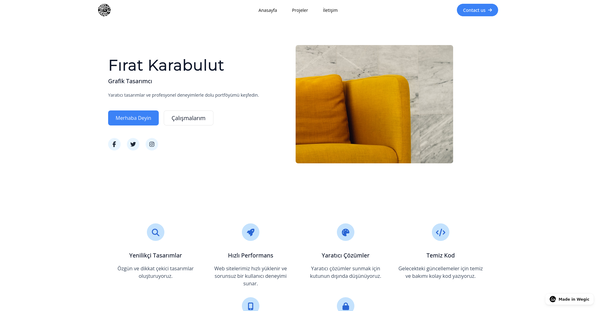Building Site Resources
Building Site Tips and Tricks
Building Site
Building a website can be an intimidating task, especially for those who are not familiar with coding or web design. Thankfully, there are many website builders available that make the process easier and more accessible for everyone. However, with so many options on the market, it can be challenging to find the most affordable website builder that still offers all the features you need. In this article, we’ll explore some of the best budget-friendly website builders that will help you create a professional-looking website without breaking the bank.

The Ultimate Guide to Building Site
Building Site
Website builders are online tools that allow users to create their own websites without needing to know how to code or design. These platforms provide a user-friendly interface with drag-and-drop functionality, making it easy for anyone to create a professional-looking website quickly and affordably.
There are many website builders available on the market, each offering different features and pricing plans. Some popular website builders include Wix, Squarespace, Weebly, and WordPress. In this article, we will discuss the benefits of using a website builder and how to choose the right one for your needs.
Benefits of Using a Website Builder
1. Easy to use: Website builders are designed for users with little to no technical skills. The drag-and-drop interface makes it easy to customize the design and layout of your website without having to write a single line of code.
2. Cost-effective: Hiring a professional web designer can be expensive, especially for small businesses or individuals on a tight budget. Website builders offer affordable pricing plans that include hosting, domain registration, and customer support, making it a cost-effective option for creating a website.
3. Customizable templates: Website builders offer a wide range of pre-designed templates that you can customize to fit your brand and aesthetic. These templates are responsive, meaning they will automatically adjust to different screen sizes, ensuring your website looks great on any device.
4. Built-in features: Website builders come with built-in features such as e-commerce functionality, SEO tools, and analytics, making it easy to optimize your website for search engines and track visitor behavior. These features are essential for growing your online presence and reaching a wider audience.
5. Quick deployment: With a website builder, you can have your website up and running in a matter of hours, compared to hiring a web designer, which can take weeks or even months to complete. This quick deployment allows you to start promoting your products or services online sooner.
How to Choose the Right Website Builder
When choosing a website builder, it’s important to consider your specific needs and goals. Here are some factors to consider when selecting the right website builder for your project:
1. Ease of use: Look for a website builder with an intuitive interface and drag-and-drop functionality that makes it easy to customize your website without any technical skills.
2. Templates: Consider the variety and quality of templates offered by the website builder. Choose a platform that provides a range of professionally designed templates that you can customize to fit your brand.
3. Features: Look for built-in features such as e-commerce functionality, SEO tools, analytics, and social media integration that will help you optimize your website for search engines and reach a wider audience.
4. Pricing: Consider your budget and choose a website builder with pricing plans that fit your needs. Some website builders offer free plans with limited features, while others offer premium plans with additional benefits.
5. Support: Choose a website builder that offers customer support through live chat, email, or phone to help you troubleshoot any issues or questions you may have while building your website.
1. Wix
Wix is a popular website builder that offers a user-friendly interface and a wide range of design templates to choose from. With Wix, small businesses can easily create a professional-looking website without any coding skills. The drag-and-drop editor makes it easy to customize your site to fit your brand and business needs. In addition, Wix offers a free plan that includes Wix branding and a subdomain, making it a great option for small businesses on a tight budget.
2. WordPress
WordPress is one of the most popular content management systems (CMS) in the world, powering millions of websites. While WordPress is known for its flexibility and customization options, it can be a bit intimidating for beginners. However, WordPress.com offers a free plan that allows users to create a basic website with limited customization options. For small businesses looking for more control and flexibility, WordPress.org is a better option, but it requires a hosting plan.
3. Weebly
Weebly is another user-friendly website builder that is perfect for small businesses. With Weebly, users can choose from a wide range of design templates and easily customize their website with drag-and-drop tools. Weebly also offers e-commerce features, making it a great option for small businesses looking to sell products online. While Weebly’s free plan includes Weebly branding and a subdomain, users can upgrade to a paid plan for more features and customization options.
4. Squarespace
Squarespace is a sleek and modern website builder that is perfect for small businesses looking to create a visually stunning website. With Squarespace, users can choose from a range of design templates and customize their site with a drag-and-drop editor. While Squarespace does not offer a free plan, they do offer a 14-day free trial, allowing users to test out the platform before committing to a paid plan.
5. Shopify
Shopify is a popular e-commerce platform that allows small businesses to create an online store. While Shopify is primarily geared towards e-commerce, they also offer a website builder that allows users to create a basic website for their business. With Shopify, users can choose from a range of design templates and customize their site with drag-and-drop tools. While Shopify does not offer a free plan, they do offer a 14-day free trial, allowing users to test out the platform before committing to a paid plan.

Building Site Challenges
Building Site
Conclusion
In conclusion, responsive web development is an essential aspect of modern website design, as it ensures that a website can adapt to different screen sizes and devices. By using flexible grids, media queries, fluid images, and a mobile-first approach, developers can create websites that provide a seamless user experience on all devices. Responsive design offers numerous benefits, including improved user experience, higher conversion rates, better SEO performance, and cost-effectiveness. While there are some challenges to consider, such as compatibility issues and performance optimization, responsive web development is a crucial practice for creating successful and user-friendly websites in today’s digital landscape.


